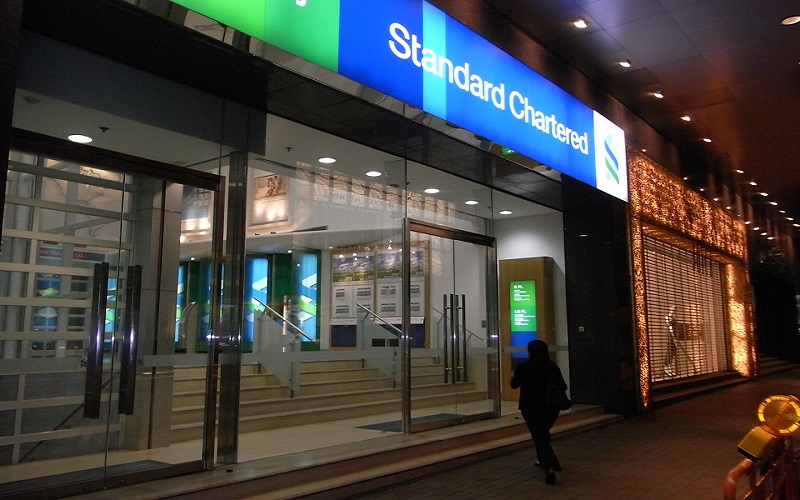Business
More Trouble For StanChart As 325 Former Employees File Fresh Claims After Losing Sh7 Billion To 629 Pensioners
The fresh claims come just weeks after the Supreme Court affirmed earlier judgments awarding the original group of 629 former workers approximately Sh7 billion in compensation for undervalued pension benefits.

Standard Chartered Bank Kenya finds itself embroiled in yet another pension dispute as 325 former employees have emerged from the shadows to demand compensation similar to that awarded to their 629 colleagues who successfully sued the lender in a case that dragged through the courts for 16 years.
The fresh claims come just weeks after the Supreme Court affirmed earlier judgments awarding the original group of 629 former workers approximately Sh7 billion in compensation for undervalued pension benefits.
The ruling, which Standard Chartered has accepted and begun processing payments for on September 22, was expected to finally close a contentious chapter in the bank’s history.
However, the emergence of the 325 additional claimants, who refer to themselves as the “Non 629 Former Employees,” threatens to reopen wounds and potentially expose the bank to billions more in liabilities.
These former workers argue they were similarly affected when Standard Chartered changed its pension scheme from a defined benefit to a defined contributory structure in 1999, the same transition that sparked the original lawsuit.
In a letter dated June 5 and addressed to both the bank and its pension scheme administrators, the group presented what they believe is a compelling case for inclusion in the compensation process.
They argued that despite not being part of the original tribunal proceedings, they were “similarly situated as employees of the bank and members of the same schemes during the period in question.”
The crux of their argument centers on fairness and equity.
“The utilisation of pension funds affected all members of the schemes in equal measures,” the group stated, requesting to be included “in the compensation process under the same terms as those granted to the 629 claimants by the Tribunal.”
Standard Chartered’s response, delivered in an August 19 letter, was swift and unambiguous.
The bank rejected the claims outright, stating they “lack any merit in law or fact.”
The lender’s legal team emphasized that the Supreme Court judgment was specific to the parties involved in the original proceedings and could not be extended to cover additional claimants who chose not to participate in the initial case.
The bank’s response carried a stern warning, telling the 325 claimants that “any action brought against the bank or the scheme shall be strenuously defended at your peril in respect to resultant costs.”
This aggressive stance suggests Standard Chartered is determined to prevent what could become an avalanche of similar claims from other former employees.
The timing of these fresh claims is particularly challenging for Standard Chartered, which had just begun to quantify the financial impact of the original judgment.
The bank issued a profit warning on Monday, projecting that its net earnings for 2025 would fall by at least 25 percent due to the pension payouts.
With 2024 net profits standing at Sh20.06 billion, the warning effectively caps 2025 profits at approximately Sh15.05 billion.
Despite the financial hit, Standard Chartered appears well-positioned to handle the original settlement.
By June 2025, the bank’s retained earnings stood at Sh48.4 billion, up from Sh43.7 billion in December 2024, while its liquidity ratio of 64.47 percent remains comfortably above the statutory minimum of 20 percent.
However, if the 325 additional claimants were to succeed in their pursuit, the financial implications could be substantial.
While the exact value of their claims remains unclear, a proportional calculation based on the original settlement could potentially add several billion more to Standard Chartered’s liabilities.
The case highlights the complex legacy issues that can haunt financial institutions decades after corporate restructuring.
The 1999 pension scheme change, initially viewed as a standard corporate reorganization, has now resulted in one of Kenya’s most expensive employment-related legal settlements.
For the 325 former employees, the battle represents more than just financial compensation.
Many of these workers likely believed they had missed their opportunity when they failed to join the original lawsuit, only to watch their former colleagues receive substantial settlements while they were left empty-handed.
The legal landscape surrounding their claims remains uncertain.
While Standard Chartered’s position appears strong given that the Supreme Court judgment was specific to the original parties, employment law experts suggest the claimants might explore alternative legal avenues, potentially arguing that they were denied due process or that the original proceedings should have included all affected parties.
As Standard Chartered prepares to defend against these fresh claims, the case serves as a cautionary tale for other financial institutions about the long-term consequences of pension scheme changes and the importance of ensuring all affected parties are properly consulted and compensated during such transitions.
The outcome of this latest dispute will likely influence how similar cases are handled across Kenya’s banking sector and could set important precedents for corporate pension scheme reforms.
For now, Standard Chartered faces the prospect of another protracted legal battle, even as it works to put the original 16-year saga behind it.
Kenya Insights allows guest blogging, if you want to be published on Kenya’s most authoritative and accurate blog, have an expose, news TIPS, story angles, human interest stories, drop us an email on [email protected] or via Telegram
-

 Business1 week ago
Business1 week agobetPawa Empire Crumbles: Mr Eazi’s Betting Gambit Unravels Amid Partner’s Shadowy Deals
-

 News5 days ago
News5 days agoDCI Probes Meridian Equator Hospital After Botched Procedure That Killed a Lawyer
-

 Business4 days ago
Business4 days agoMinnesota Fraud, Rice Saga, Medical Equipment Deal: Why BBS Mall Owner Abdiweli Hassan is Becoming The Face of Controversial Somali Businessman in Nairobi
-

 Business1 week ago
Business1 week agoKRA Boss Humphrey Watanga In Big Trouble In Sh5.5 Billion Rice Import Scandal
-

 Investigations2 weeks ago
Investigations2 weeks agoKERRA Homa Bay Region Manager Calvince Thomas Accused of Swindling Businessman Ksh 2 Million in Phantom Tender Deal
-

 Business1 week ago
Business1 week agoState Set to Demolish Pastor Ng’ang’a’s Church in Sh28 Billion Railway City Push
-

 Business2 weeks ago
Business2 weeks agoTreasury’s Sh40 Billion Safaricom Gamble Could Cost Kenya Trillions, Auditor Warns
-

 Business6 days ago
Business6 days agoControversial Turkish Firm Celebi Canceled in India Over Security Concerns Acquires Strategic Property in Nairobi’s Main Airport




















